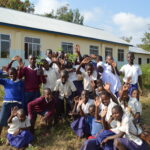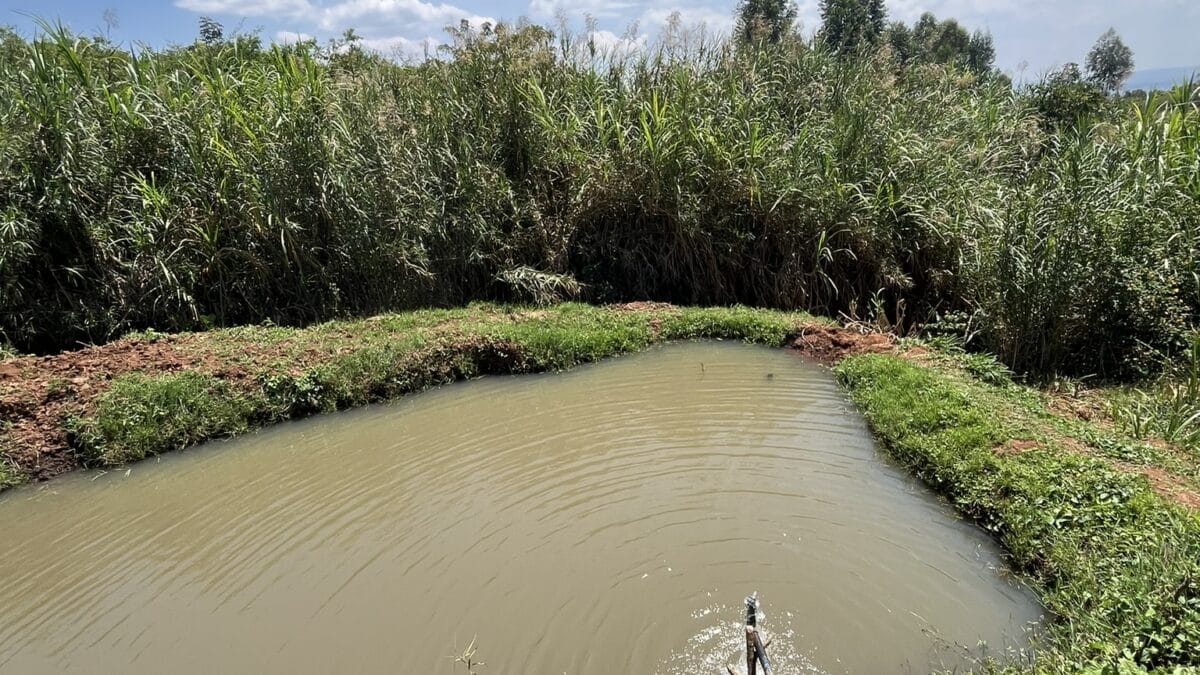Fall 2024 Neighbors Magazine
September 23, 2024
Tanzanian Students Drive Climate Action Through Tree Planting
November 6, 2024Fish Farming Can Damage the Environment. It Doesn’t Have To.

Fish is a vital source of protein around the world. Yet fish can be expensive and difficult to access, especially in remote and isolated parts of the world. It can also be environmentally damaging when raised in industrial scale fish farms.
Communities in rural Uganda have found a solution: Fish ponds.
Families and communities dig ponds and line them with plastic. They are then filled with water and fish, usually tilapia or catfish. Some ponds contain 1,000 or more fingerlings. Fish are fed sustainably produced feed and household food scraps. Water is replenished with stored rainwater. The “used” water with nutrient-rich fish waste is piped out to irrigate nearby vegetable gardens.
It’s a sustainable, low-cost system that can produce large amounts of both fish and vegetables. A number of families and communities produce surpluses of both, which are sold in local markets. Last quarter, families engaged in fish farming in one relatively small area of Uganda produced more than 500 pounds of catfish.
World Neighbors is the international development organization that works with local partners in Uganda to teach communities the fish farming system. Rural communities in Tanzania, Kenya, Haiti, Peru and other countries are also benefiting from it.

